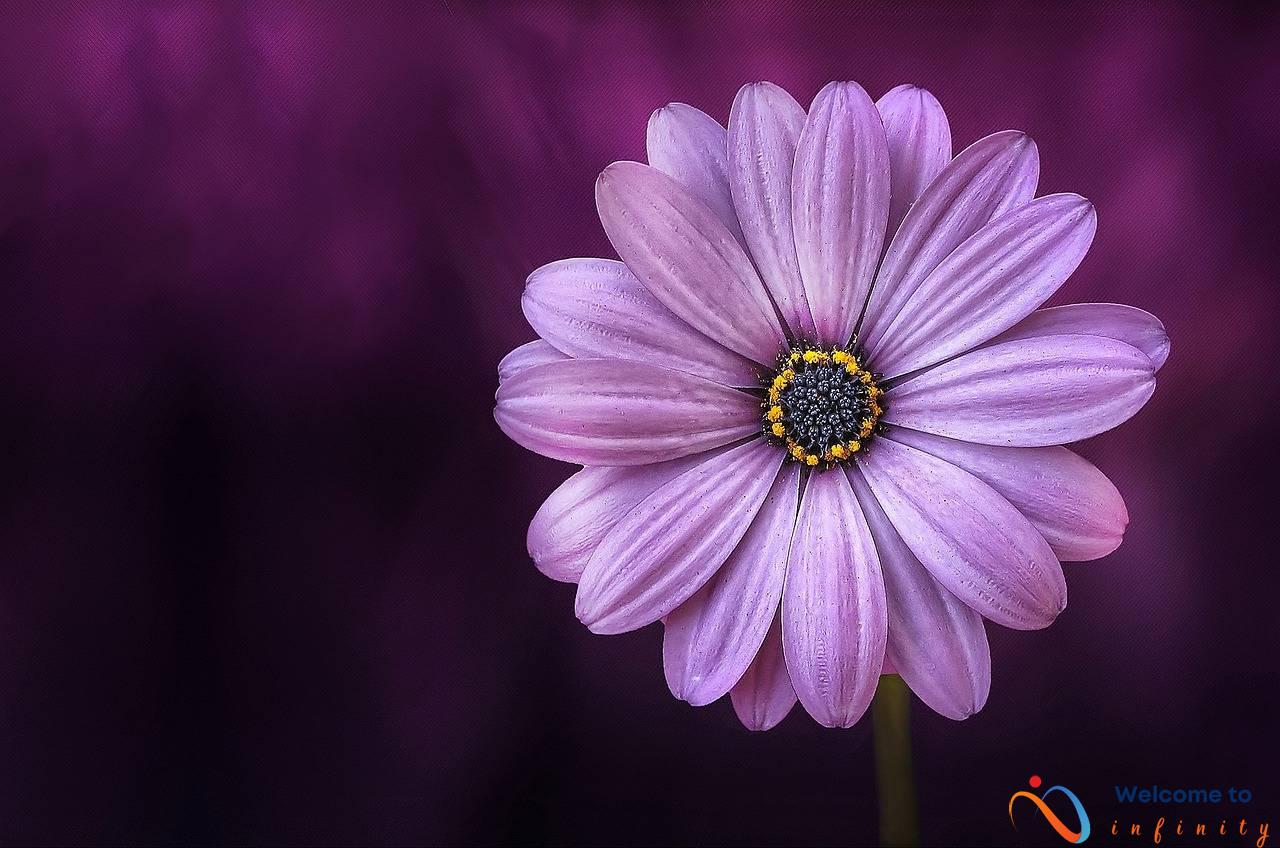College is a time when students experience a lot of changes, and most of the time, taking care of skin is not their top priority. Between studying, socializing, and staying on a budget, skincare often falls to the wayside. However, it's important to remember that proper skincare is essential to maintain healthy skin and prevent premature aging. The good news is that you don't have to spend a fortune to have a good skincare routine. In this article, we will explore ways for college students to keep their skin healthy without breaking the bank.
The first step to a great skincare routine is understanding your skin type. This will help you select products that are best suited for your skin's individual needs. There are four skin types: normal, oily, dry, and combination. Normal skin is well-balanced – not too oily or too dry. Oily skin produces more oil than necessary, whereas dry skin produces too little oil. Combination skin has both oily and dry areas. Knowing your skin type will help you find the right cleanser, moisturizer, and sunscreen for your skin.
Creating a simple, yet effective skincare routine is crucial. A basic routine should include cleansing, moisturizing, and sun protection. For cleansing, choose a gentle cleanser that's suitable for your skin type. For moisturizing, pick a product that is hydrating and non-greasy. Don't forget to apply sunscreen every day to protect your skin from harmful UV rays. Aim for a minimum SPF of 30 and reapply every two hours when outdoors.
If you want to save money on skincare, consider making your own DIY skincare products. Natural and affordable ingredients such as honey, oatmeal, and avocado can do wonders for your skin. You can make your own face masks, body scrubs, and even toners without spending a lot of money. For example, a mixture of honey and cinnamon can help clear up acne, while a sugar and coconut oil body scrub can exfoliate and moisturize.
Finally, don't forget to take advantage of money-saving strategies like deals, coupons, and buying in bulk. Many retailers offer discounts and promotions on skincare products, especially online. Buying in bulk can also save you money in the long run. And don't be afraid to try drugstore skincare brands – they often offer great products at affordable prices.
Understanding Your Skin Type
Before you start building your skincare routine, you need to understand your skin type. Knowing your skin type will help you choose the right products that work best for you. There are five basic skin types: normal, dry, oily, combination, and sensitive.
| Skin Type | Description | Skincare Tips |
|---|---|---|
| Normal | Not too oily or dry | Use a gentle cleanser and moisturizer daily |
| Dry | Tight, rough, or flaky skin | Use a hydrating cleanser and moisturizer, and avoid hot water |
| Oily | Shiny and greasy skin, often with acne | Use a foaming cleanser and oil-free moisturizer, and avoid heavy makeup |
| Combination | Some areas are oily and some are dry | Use a mild cleanser, oil-free moisturizer in oily areas, and hydrating moisturizer in dry areas |
| Sensitive | Easily irritated and prone to redness | Use fragrance-free, hypoallergenic, and gentle products |
Identifying your skin type can be challenging, but you can start by washing your face with a gentle cleanser and observing how your skin reacts after about an hour. If your skin feels tight and dry, you most likely have dry skin. If it feels oily and shiny, you most likely have oily skin. If it feels balanced, you most likely have normal skin. If it feels oily in some areas and dry in others, you most likely have combination skin. If your skin feels irritated, itchy, or red, you most likely have sensitive skin.
Once you've identified your skin type, it's time to choose skincare products that work best for you. Look for products that are formulated for your skin type and avoid those that contain harsh ingredients that can damage your skin. Pay attention to the texture and consistency of the products, as well. For example, if you have oily skin, you should choose lightweight and oil-free products that won't clog your pores.
Understanding your skin type is the first step towards achieving healthy skin. By choosing the right products that suit your skin type, you can prevent skin problems and keep your skin looking its best.
Creating a Skincare Routine
Creating a skincare routine doesn't have to be overwhelming or expensive. All you need to do is follow a few simple steps to keep your skin healthy and glowing:
- Start by identifying your skin type. Is it oily, dry, combination, or sensitive? Knowing your skin type will help you choose the right products for your skin
- Cleanse your skin regularly. Cleansing helps remove dirt, makeup, and impurities that can clog your pores and cause breakouts. There are different types of cleansers available such as foaming, gel, cream-based, and oil-based. Choose one that suits your skin type and use it twice a day: in the morning and at night.
- Moisturize your skin daily. Moisturizing helps keep your skin hydrated, soft, and supple. It also helps prevent fine lines and wrinkles. Choose a moisturizer that suits your skin type and use it after cleansing.
- Protect your skin from the sun. Overexposure to the sun's UV rays can cause premature aging, dark spots, and even skin cancer. Use a broad-spectrum sunscreen with an SPF of 30 or higher. Apply it every 2-3 hours, especially when you're outdoors.
Building a skincare routine may take time and experimentation but once you find what works best for your skin, you'll be rewarded with healthy, glowing skin every day. Remember to be gentle with your skin, avoid harsh ingredients, and always remove your makeup before going to bed.
Cleansing
Cleansing is an essential step in any skincare routine as it helps to remove dirt, oil, and impurities that can clog pores and cause breakouts. It also prepares the skin for moisturizing and other treatments by allowing them to penetrate deeper.
When it comes to choosing a cleanser, there are many different types available, including foaming cleansers, gel cleansers, oil cleansers, and micellar water. Foaming cleansers are great for oily skin types as they help to remove excess oil and impurities, while gel cleansers are better suited for combination or normal skin types. Oil cleansers are great for removing makeup and sunscreen, and micellar water is a gentle option for sensitive skin.
When cleansing, it's important to use a gentle touch and avoid over-cleansing, as this can strip the skin of its natural oils and cause dryness and irritation. It's also a good idea to double-cleanse if you wear heavy makeup or SPF to ensure that all impurities are removed.
Moisturizing
Moisturizing is a crucial step in any skincare routine and it is important to choose the right moisturizer for your skin type. If you have dry skin, look for moisturizers that are thicker and creamier. For oily skin, opt for oil-free or gel-based moisturizers. Combination skin may require a moisturizer that is light yet hydrating.
When selecting a moisturizer, check the label for ingredients such as glycerin, hyaluronic acid, and ceramides. These ingredients help to hydrate and lock in moisture, leaving your skin feeling soft and supple.
A common misconception about moisturizers is that they cause breakouts, but this is not necessarily true. In fact, moisturizing can actually help to prevent breakouts by keeping your skin balanced and healthy.
In addition to applying moisturizer daily, it is important to drink plenty of water and eat a healthy diet to ensure that your skin is hydrated from the inside out. Remember, healthy skin starts with a good skincare routine and proper hydration.
Protecting Your Skin
Protecting your skin from the harmful effects of UV radiation is crucial for maintaining healthy skin. One of the most effective ways to protect your skin is by wearing sunscreen. Sunscreen with SPF 30 or higher is recommended by dermatologists to provide adequate protection against UVB and UVA radiation.
UVB radiation is responsible for sunburn and the development of skin cancer. UVA radiation can penetrate deeper into the skin, causing premature aging and wrinkles. Choosing a broad-spectrum sunscreen that offers protection against both UVA and UVB radiation is important to protect your skin from both short-term and long-term damage.
When choosing a sunscreen, consider your skin type and any specific skin concerns you may have. If you have oily or acne-prone skin, look for a non-comedogenic formula that won't clog pores. If you have sensitive skin, choose a fragrance-free and hypoallergenic formula. Additionally, if you have dry skin, opt for a moisturizing sunscreen to combat any dryness or flakiness.
Don't forget to reapply sunscreen every two hours, or more frequently if you're swimming or sweating. Sunscreen should be applied generously, covering all exposed areas of skin, including your ears, neck, and the tops of your feet. Remember to apply sunscreen 15 minutes before sun exposure to allow it to fully absorb into the skin.
- Look for a broad-spectrum sunscreen with SPF 30 or higher
- Consider your skin type and specific concerns when choosing a formula
- Reapply sunscreen every two hours, or more frequently if swimming or sweating
- Apply sunscreen generously, covering all exposed areas of skin
- Apply sunscreen 15 minutes before sun exposure to allow it to absorb into the skin
DIY Skincare
DIY skincare can be a fun and affordable way to take care of your skin. By using ingredients you already have at home, you can create natural and effective skincare solutions that are gentle on your skin. Here are some DIY skincare ideas to get you started:
- DIY Face Masks: Face masks can help to brighten, moisturize, and exfoliate your skin. Some popular ingredients for face masks include honey, oatmeal, and avocado. To make a honey and oatmeal mask, mix together one tablespoon of honey and one tablespoon of ground oats. Apply the mixture to your face and leave it on for 10-15 minutes before rinsing it off with warm water.
- DIY Body Scrubs: Body scrubs can help to exfoliate and hydrate your skin. You can make a simple body scrub using ingredients like sugar, coffee, and coconut oil. To make a sugar scrub, mix together one cup of sugar and half a cup of coconut oil. Use the mixture to exfoliate your skin in the shower.
- DIY Lip Balm: Lip balm is an essential skincare product, especially during the colder months. To make a simple lip balm, mix together one tablespoon of beeswax, one tablespoon of coconut oil, and a few drops of essential oil. Melt the mixture in a double boiler and pour it into a small jar. Allow it to cool and solidify before using.
When making your own skincare products, be sure to patch test the formula on a small area of skin before using it on your entire face or body. This will help you to determine if you have any allergies or sensitivities to the ingredients. In addition, make sure to sanitize any equipment or containers before using them to avoid contamination.
Overall, DIY skincare is a great way to take care of your skin on a budget. By using natural and affordable ingredients, you can create effective skincare solutions that work for your skin type without breaking the bank.
DIY Face Masks
DIY face masks are a great way to nourish your skin with natural ingredients without breaking the bank. Making your own face mask is easy and fun, and you can customize it according to your skin's needs.
Here are step-by-step instructions for making face masks using ingredients like honey, oatmeal, and avocado:
- Honey Face Mask: This mask is perfect for all skin types and helps moisturize the skin.
- Mix 1 tablespoon of honey with 1 teaspoon of coconut oil.
- Apply the mixture to your face and leave it on for 15-20 minutes.
- Rinse off with warm water.
- Oatmeal Face Mask: This mask is ideal for sensitive and dry skin and helps exfoliate dead skin cells.
- Blend 1/2 cup of oatmeal in a blender until it turns into a powder.
- Mix 1 tablespoon of oatmeal powder with 1 tablespoon of honey.
- Add enough water to make a paste.
- Apply the paste to your face and leave it on for 15-20 minutes.
- Rinse off with warm water.
- Avocado Face Mask: This mask is perfect for oily and acne-prone skin and helps nourish and hydrate the skin.
- Mash 1/2 ripe avocado in a bowl.
- Add 1 tablespoon of honey and 1 tablespoon of plain yogurt to the bowl.
- Mix well to form a smooth paste.
- Apply the paste to your face and leave it on for 15-20 minutes.
- Rinse off with warm water.
DIY face masks are a great way to pamper your skin and keep it healthy without spending a lot of money on expensive skincare products. Give these masks a try and see the difference for yourself!
DIY Body Scrubs
If you're a college student on a tight budget, there's no need to spend a fortune on expensive body scrubs. You can easily make your own using simple ingredients that you may already have in your kitchen. Body scrubs are a great way to exfoliate and remove dead skin cells, leaving your skin feeling soft and smooth. Here are some easy DIY body scrub recipes that you can try at home:
| Ingredients | Instructions |
|---|---|
| Sugar, olive oil, and lemon juice | Mix 1/2 cup sugar, 1/4 cup olive oil, and 2 tablespoons lemon juice in a bowl. Apply to damp skin and massage gently. Rinse off with warm water. |
| Coffee grounds and coconut oil | Mix 1/2 cup coffee grounds and 2 tablespoons melted coconut oil in a bowl. Apply to damp skin and massage gently. Rinse off with warm water. |
| Brown sugar and honey | Mix 1/2 cup brown sugar and 2 tablespoons honey in a bowl. Apply to damp skin and massage gently. Rinse off with warm water. |
These DIY body scrubs are easy to make and affordable. You can customize them to your liking by adding more or less of your favorite ingredients. Not only are they good for your skin, but they also make great gifts for your friends and family.
Skincare on a Budget
Skincare doesn't have to be expensive! Here are some tips and tricks for keeping your skin healthy and beautiful without breaking the bank:
- Check online coupon websites like RetailMeNot for deals and promo codes on your favorite skincare brands.
- Sign up for email newsletters from your favorite brands to be the first to know about upcoming sales and promotions.
If you have a favorite skincare product, consider buying it in bulk to save money. Many brands offer discounts when you purchase multiple items at once, and you'll have a backup when you run out.
Not all drugstore skincare brands are created equal, but here are a few that are definitely worth trying:
| Brand | reasons to Try |
|---|---|
| Cetaphil | Great for sensitive skin, affordable, and available at most drugstores. |
| Neutrogena | Wide variety of products for all skin types, easy to find, and reasonably priced. |
| CeraVe | Recommended by dermatologists, affordable, and great for dry and sensitive skin. |
Don't let a tight budget stop you from taking care of your skin. With these tips and affordable options, you can maintain healthy and radiant skin without spending a fortune.
Deals and Coupons
Skincare doesn't have to break the bank — especially if you're savvy about finding deals and coupons online. Here are a few tips to help you save money on your favorite skincare products:
- Sign up for email newsletters: Many skincare brands offer exclusive discounts and promo codes to their email subscribers. By signing up for these newsletters, you'll be the first to know about upcoming sales and special offers.
- Check social media: Keep an eye on your favorite skincare brands' social media accounts for flash sales and limited-time offers. You can also follow influencers and beauty bloggers who often share promo codes and discount links on their channels.
- Use coupon websites: There are many websites dedicated to curating deals and coupons for a variety of products, including skincare. Some popular options include RetailMeNot, Coupons.com, and Groupon.
- Try out sample sizes: Before committing to a full-size product, see if you can get a sample size first. Many skincare brands offer free samples with purchase or allow you to purchase trial sizes for a lower cost.
Remember to always read the fine print and check for expiration dates on any coupons or promo codes you find online. With a little bit of research and creativity, you can keep your skin healthy without busting your budget.
Buy in Bulk
If you are on a tight budget but still want to maintain healthy skin, buying skincare products in bulk can be an excellent option. Many brands offer discounts and deals when you buy multiple products at once, so stocking up can save you money in the long run.
Make sure you evaluate which products you use the most and buy those in bulk. For example, if you use body lotion daily, purchasing it in larger quantities can save you a significant amount of money and prevent you from running out frequently. However, avoid buying products in bulk that have a shorter shelf life or that you might not use as much.
Another benefit of buying skincare products in bulk is that it reduces packaging waste. With extra products on hand, you won't have to order as frequently, reducing the packaging, shipping, and carbon footprint associated with your skincare routine.
Before making a bulk purchase, be sure to check the expiration date and make sure the products are suitable for your skin type. Also, do your research and compare prices and deals from various retailers to make sure you get the best deal.
- Make a list of which products you use daily and decide which ones to purchase in bulk to maximize savings.
- Check the expiration date and make sure the products are suitable for your skin type.
- Compare prices and deals from different retailers before making a bulk purchase.
By implementing these tips, you can save money on skincare without sacrificing quality or effectiveness. Remember that buying in bulk can benefit the environment, your wallet, and your skincare routine.
Drugstore Brands to Try
While luxury skincare brands may offer high-quality products, they can often come with a hefty price tag. Luckily, drugstore brands have stepped up their game in recent years, offering affordable yet effective options. Here are some drugstore skincare brands to try:
- Cetaphil: This brand has been around for a while, and for a good reason. Their gentle cleansers, moisturizers, and sunscreens work wonders for people with sensitive skin or those who prefer a more minimalist approach to skincare.
- CeraVe: Another brand that caters to sensitive skin, CeraVe offers a range of products that contain ceramides, which help to strengthen and maintain the skin's natural barrier.
- The Ordinary: This brand has taken the skincare world by storm with their affordable yet potent serums, oils, and acids. Their straightforward approach to skincare and ingredients list makes it easy to customize your routine to fit your skin's needs.
- Neutrogena: Neutrogena offers a vast range of skincare products, from acne-fighting treatments to anti-aging solutions. Their Hydro Boost line, in particular, is popular for its lightweight yet hydrating formulas.
- La Roche-Posay: This French brand is known for its expertise in treating various skin conditions, such as acne, eczema, and rosacea. Their products are formulated with thermal spring water, which is believed to have soothing and healing properties for the skin.
Remember, just because a product is affordable doesn't mean it's not of good quality. These drugstore brands have proven themselves to be reliable and effective options for those on a budget. Don't be afraid to experiment and find the products that work best for your skin type and concerns.












